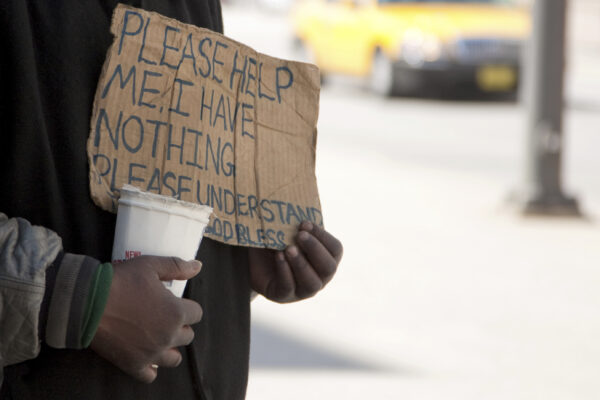In an ACLU victory, the Supreme Judicial Court (SJC) today struck down a state statute that criminalizes poverty by penalizing people for asking for money from vehicles on public roads.
“The Supreme Judicial Court has emphatically declared that laws which target people who ask for charity are unconstitutional and a violation of civil rights and civil liberties,” said Ruth Bourquin, senior and managing attorney at the ACLU of Massachusetts. “This ruling is timely, as a growing number of Massachusetts residents may need to rely on support from the public to make ends meet in the face of our current economic downturn. All law enforcement agencies and municipalities in the Commonwealth should take note: If efforts to harass or charge these individuals continue, the officers and the entities for which they work will be exposing themselves to liability.”
The ACLU of Massachusetts, with the firm McCarter & English, filed a lawsuit against the City of Fall River in March 2019, challenging the city’s use of the state statute. According to the lawsuit, the City of Fall River aggressively enforces the unconstitutional state law making it illegal for people to ask for money for their own support on public roads.
During 2018 and into 2019, members of the Fall River Police Department filed more than 150 criminal complaints against some of the city’s most vulnerable residents. The ACLU lawsuit was filed on behalf of the Massachusetts Coalition for the Homeless and two Fall River residents experiencing homelessness; John Correira and Joseph Treeful have been repeatedly targeted for standing by the side of roads with signs and accepting donations from nearby drivers.
The Massachusetts statute exempts selling newspapers or, with a permit, other items. It also exempts requests for charity made by nonprofit organizations. The ACLU argued these requests for help are constitutionally-protected, and that its enforcement—and enforcement of similar statutes or ordinances—is therefore unlawful. In its new ruling, the SJC concluded that the state statute is unconstitutional because it is a content-based regulation of protected speech.
The ACLU of Massachusetts previously challenged a similar statute, two Worcester ordinances, and a related Lowell ordinance. In 1997, the SJC declared the state statute unconstitutional. In 2015, two federal judges sided with the ACLU and struck down the Worcester and Lowell ordinances.
For more information about Massachusetts Coalition for the Homeless v. Fall River, go to: https://www.aclum.org/en/cases/massachusetts-coalition-homeless-v-city-fall-river
Stay Informed
Sign up to be the first to hear about how to take action.
By completing this form, I agree to receive occasional emails per the terms of the ACLU’s privacy statement.
By completing this form, I agree to receive occasional emails per the terms of the ACLU’s privacy statement.

